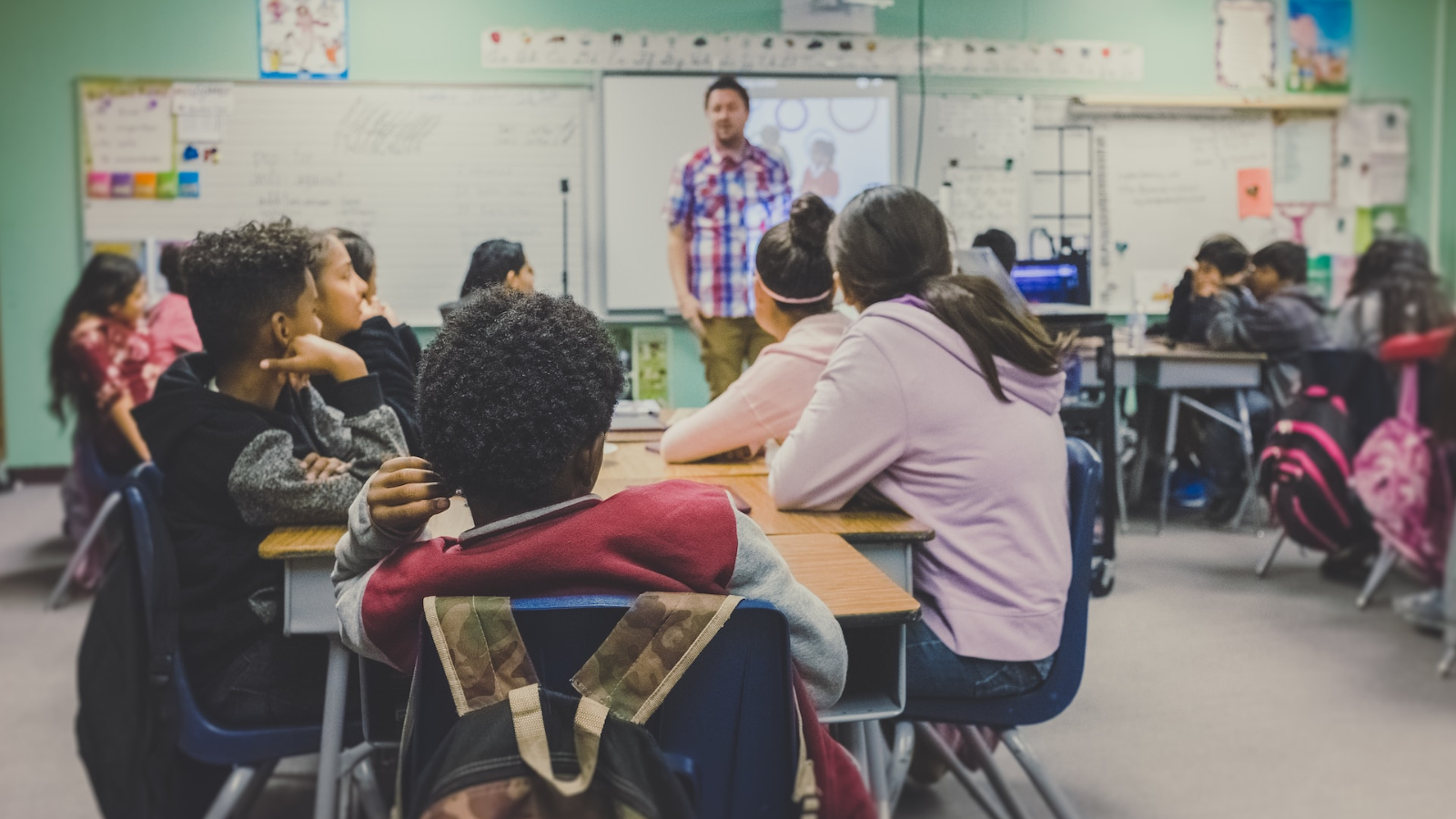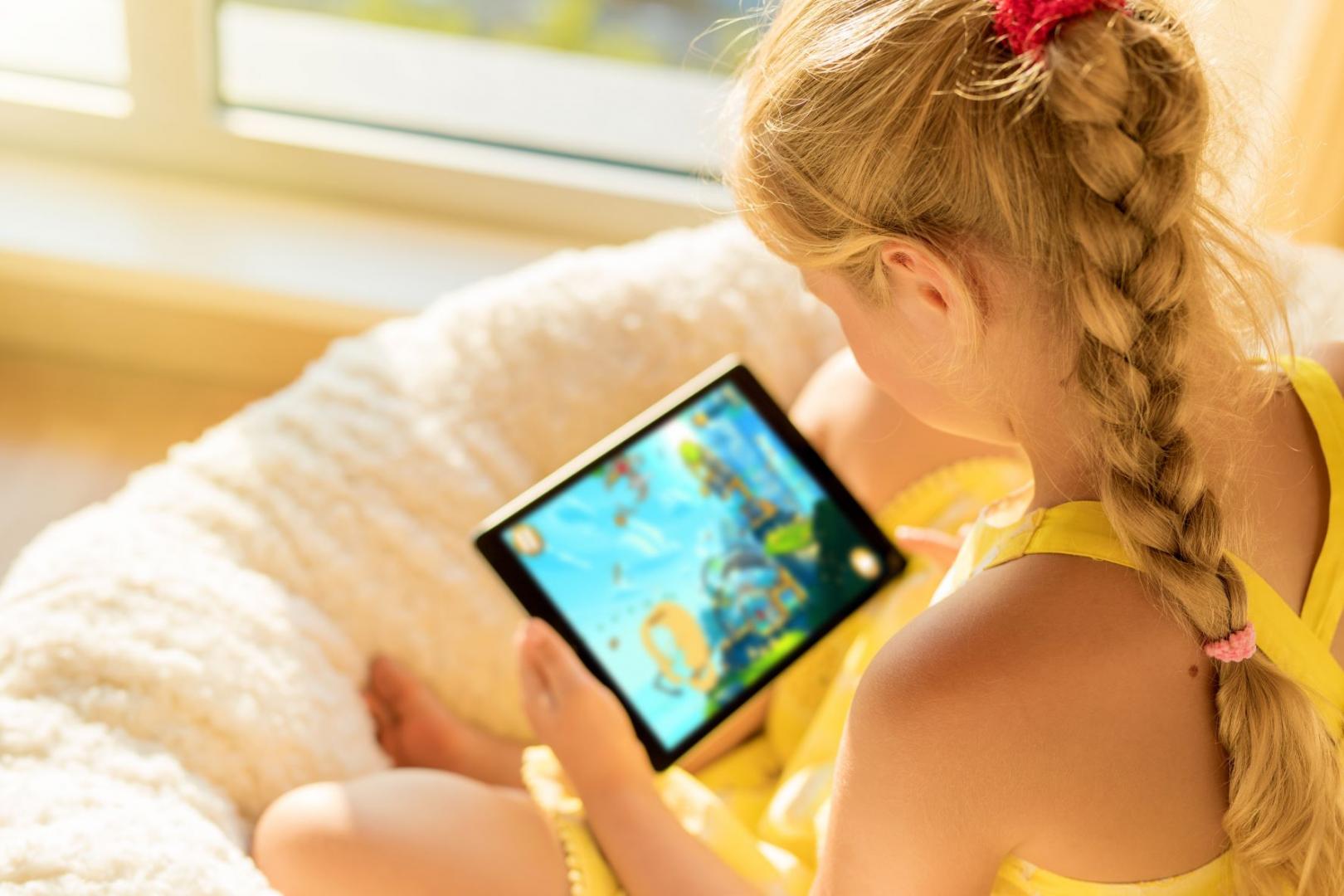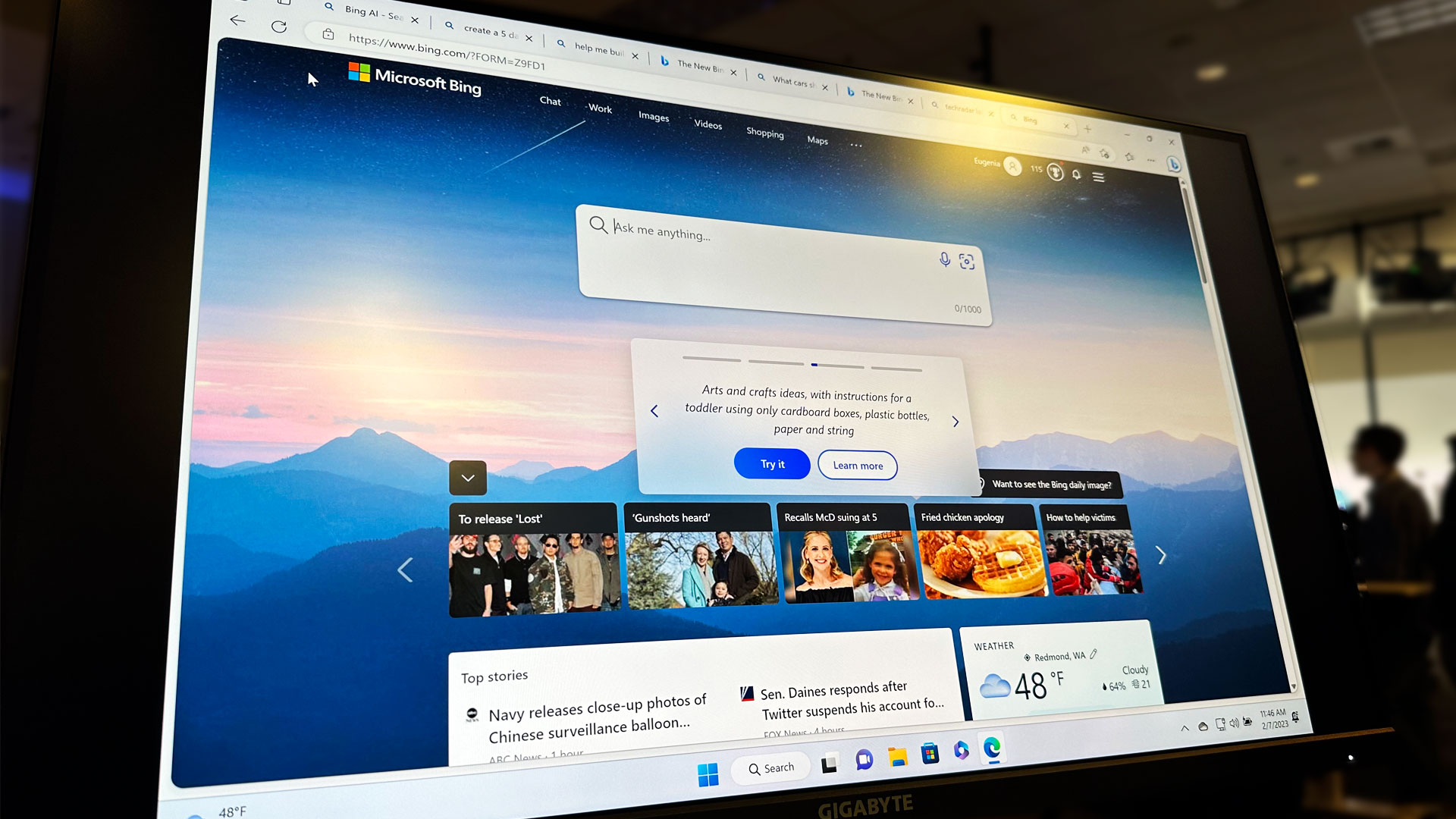Parents, meet the AI chatbots transforming education
AI chatbots: Homework’s helpful hands

Sign up for breaking news, reviews, opinion, top tech deals, and more.
You are now subscribed
Your newsletter sign-up was successful
It’s the time of year again when children are back in school and parents might find they need to help their kids with homework.
However, there’s now a host of new tools at parent’s disposal that haven’t been available in previous academic years that can give a huge boost when it comes to assisting with homework: chatbots equipped with artificial intelligence.
Not your grandma's school experience
You may have heard of a little (or rather, huge) AI chatbot called ChatGPT (or one of its competitors), and it’s worth taking the time to familiarise yourself with how AI chatbots work and what they can do.
It's likely that your kid either already knows about it, or will in the near future, and the temptation for kids to explore the new tech must be huge. A machine that cranks out finished homework?! Come on!
In fact, your child’s school might actually introduce them to ChatGPT or have a teacher use it in the course of a lesson. It’s completely natural, however, for parents to want to know that even with the benefits of these new AI tools, your child will still develop critical thinking, creative ability, and moral understanding.
What the cool parents are talking about
The Globe and Mail, a Canadian newspaper, spoke to a whole host of parents, family coaches, and media experts on this issue who had some interesting insights. There’s an overwhelming feeling of anxiety among parents at the whirlwind rate of advancement of chatbots and other assistant writing tools.
If you have similar concerns, you’re not alone, and experts recommend that you have regular conversations with your child about school work, and for parents to set a positive example when it comes to healthy tech use. Talk to your children about why these tools exist, what purpose they serve, and what consequences there might be if they use them (good and bad).
Sign up for breaking news, reviews, opinion, top tech deals, and more.
Many schools have already started formulating policies regarding AI use, and distributing them to parents and guardians. It’s important that you become familiar with your child’s school's policies around the use of AI, writing tools, and other academic tools.

What the experts have to say
The Globe and Mail also spoke to child psychologist, Linda Pagani, on the issue and she offered some advice. She echoes the recommendation that parents take time to understand new tools, and even says that you should do this alongside your kids, while explaining to them how these tools can be useful, what their pitfalls are, and what potential problems they pose.
She also suggests that children should do homework in a common area of the home such as a kitchen table. After all, if they’re alone in their room, they may be more prone to distractions like YouTube and TikTok. We have some tips for how you can eliminate distractions, especially while working digitally. Practices like these can help assist in forming a good work ethic.
Kids and teens are still developing and building their understanding of the world, and adult guidance is crucial - especially when it comes to being safe online and understanding some of the ethics around things like ChatGPT. Especially around the ages of thirteen to fifteen, Prof. Pagani, emphasises that children start to develop more abstract thinking and have higher-level moral debates, and so, they can contemplate topics like this better at that age.
Parents and teachers can be instrumental in encouraging and influencing this understanding. She urges parents to not be quick to present AI tools as either good or bad, and instead discuss them in terms of usefulness. If you recall being a teenager, you might see why - as soon as adults say something is bad or even off limits, it becomes instantly cool.

Developing your child's ethical understanding
A major area of conversation around AI tools is how they can be used for cheating. If you understand how something like ChatGPT works, it’s not hard to imagine the temptation. To address this, Matthew Johnson, a media literacy expert director of education for the group MediaSmart, advises that parents and teachers take extra care to focus on the importance of learning as an ongoing process, and not just the final grades and results.
He elaborates that parents can foster this by encouraging kids to express themselves, take them to museums and art galleries, and cultivate their interests in other ways.
Another aspect that is cause for concern for many parents is that sometimes chatbots like ChatGPT can dispense information that’s inaccurate or harmful.
Having open discussions with your children is particularly beneficial for such sensitive topics. You want your children to be able to come to you if they’re faced with a challenge and feel like they need help. It also highlights why it’s imperative to build your child’s self esteem and the ability to rely on themselves.
Kids and teens should get the space and opportunity to grow - they shouldn’t be forced to feel like they have to be the most efficient and productive they can be. That pressure will come later. There are more important skills, faculties, and values that they should develop first, and once those are in place, they’ll be able to figure out how AI tools and the like work just fine.

Make AI chatbots your friends instead of foes
If you’re done wrestling with the ethical conundrums that AI tools present (at least for the moment), I have some ways you can make it a force for good in your child’s learning. If you can’t beat ‘em, join ‘em, right?
First off, you can enlist AI chatbots like Bing AI or Google’s Bard that are integrated into search engines (Bing Search and Google Search respectively) to help with research and gathering information. You can also use ChatGPT, but the free version is only equipped with information up to 2021. For more up-to-date information you’ll need to shell out for the paid version. This can be used in conjunction with teaching them about search engines and educational websites.
You and your child can turn to an AI chatbot to clarify assignment instructions or define unfamiliar terms to help kids understand what is being asked of them. This is an opportunity to support the development of your child’s self-reliance as they learn how to seek out answers and information on their own, as well as learning about how to discern information.

When kids are a little younger, you can use AI tools to find ways to explain and clarify things to them. When your kids are older, you can begin to show them how they can access the tools for themselves for guidance and understanding. This, of course, is when they understand that they shouldn’t just copy and paste whatever the AI bot spits out (and why).
AI bots can whip up things like essay plans and give you step-by-step solutions that you can share with your child (or request from the bot themselves). The chatbots can give guidance and allow someone to figure out an answer for themselves.
You can even ask your AI chatbot of choice to give you some suggestions of resources you can turn to, whether it be physical books or other sites, that can expand your child’s understanding of a topic and teach them to consider a variety of sources.
If used with proper discretion, this can encourage a willingness to ask questions, develop their curiosity, and know that it’s okay to ask for help.

Finally, you can use AI chatbots to generate practice questions and quizzes for a specific topic. You can also ask it to generate answers (but it’s worth double-checking these with a search engine). You can then let your child answer the questions by themselves and go through the answers together.
This provides your child with extra practice and gives them an opportunity to work independently, while knowing they have you nearby.
My top picks for AI chatbots to help you out
1. ChatGPT, developed by OpenAI. Its explosive debut was impossible to miss and it can generate human-quality text to a pretty high degree.
2. Bard, developed by Google. This is Google’s answer to ChatGPT’s popularity, working in a similar manner but trained on a different data set and developed for a slightly different purpose.
3. Bing AI, by Microsoft. This works in a similar manner to the two above, and has ChatGPT’s tech built into it.
4. Claude, from Anthropic. This chatbot is still in beta testing, and Anthropic claims to be focused on building AI models that are “helpful, honest, and harmless.”
If you’re a parent, the seemingly unstoppable rise of AI may be concerning, especially when it comes to your children's’ education and safety.
It’s increasingly important to have some level of understanding about how AI chatbots don’t exist to replace humans and brains (for now), and that they can be used to aid critical thinking and creativity.
Kristina is a UK-based Computing Writer, and is interested in all things computing, software, tech, mathematics and science. Previously, she has written articles about popular culture, economics, and miscellaneous other topics.
She has a personal interest in the history of mathematics, science, and technology; in particular, she closely follows AI and philosophically-motivated discussions.